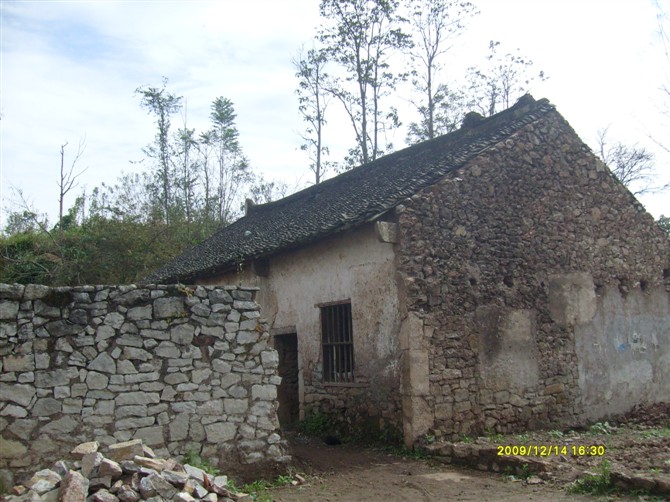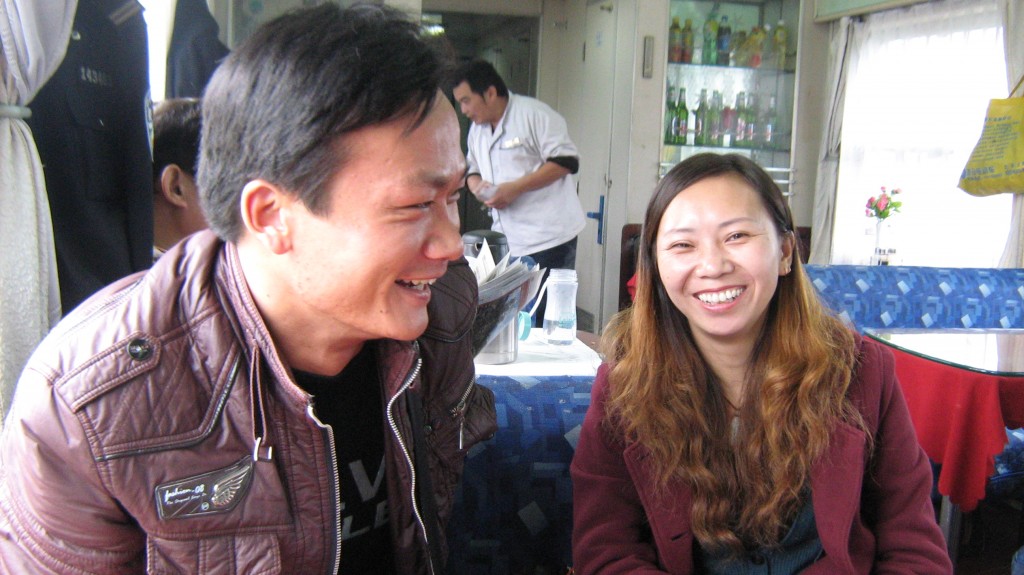Peng Qinglan’s Road Home ( Part 3 )
WRIC’s Yao Cheng All photos by WRIC November 31,2010
Peng Qinglan’s Putian house was located in a village on the edge of the city. Of her adopted parents and seven siblings, most traveled to other cities for work. When I visited only a brother and a sister-in-law were present. Families of this size were quite common in this village. People here did not have a tradition of heavy emphasis on children’s education. None of the five daughters in the Peng family finished elementary school. Two of the sons only went to eighth grade. Only one graduated middle school. It was local opinion that kids only needed to be able to read and count some money to get by. Without much education, they were almost all working in labor-intensive industries such as masonry and commercial fishing. Such work required large numbers of male laborers. It was understandable that families would often want seven, eight, up to a dozen children.
Sons who were born in the family were “supplemented” by boys who were trafficked and bought. All of them would need to get married in adulthood. So more girls would have to be bought as well. One human tragedy followed another.
Villagers told me that almost every house had children who “came” this way (a common euphemism). Peng told me that one of her three sisters was also a kidnapped girl and hoped that one day we would be able to find her original family as well. If every family in this medium-sized village of 300 household had one trafficked child, a town comprising ten villages would have 3000 such children. Putian County had 53 townships. It would not be too much exaggeration to estimate that the total number of trafficked children would number in six digits in this county alone.

 。
。
WRIC had already helped a woman who was sold into the same village less than a year ago. Xiao Guangyan lived nearby. Because of our prior work with Ms. Xiao, we already had some contacts in the village friendly towards us. But it was easy to see that many other families were avoiding us at all costs. They were afraid that the children they bought would be gone once they found their real parents.
Xiao Guangyan invited me to her house at noon. Peng Qinglan came as well, along with many friends and relatives of both families. Both women came from Guizhou province. They not only wanted to thank us for fulfilling their wish to reunite with their families but also hoped that we would do the same for many of their friends. During the meal of seafood dishes, they told me that many villagers with similar experiences wanted to search for their families after Xiao and Peng’s successes. Many however were reluctant both for not knowing how to do this and for fear of irritating their current families. They hoped that Huijiawang would start by helping clandestinely.
When we were helping Xiao and Peng I never thought that far. Now we were faced not with one or two people looking for their family, but the missing children who ended up in this village and town, to the tens or hundreds of thousands in Putian, to Fujian and Guangdong, the two rich coastal provinces where the problem was particularly widespread. It was a sobering thought.
Comparatively, life in Putian was richer than the Guizhou hill country. But it didn’t mean a happy life for trafficked children who were sold here. They seldom could make their own decisions about marriage when grown up. Girls who were bought as child brides of course had no choice at all.
During the day I spent in the village I tried to strike up conversations with as many people as possible. I passed our cards to everyone, hoping many more people would find WRIC through the cards, to know more about Huijiawang, to be helped by us one day and to become a volunteer as well.

